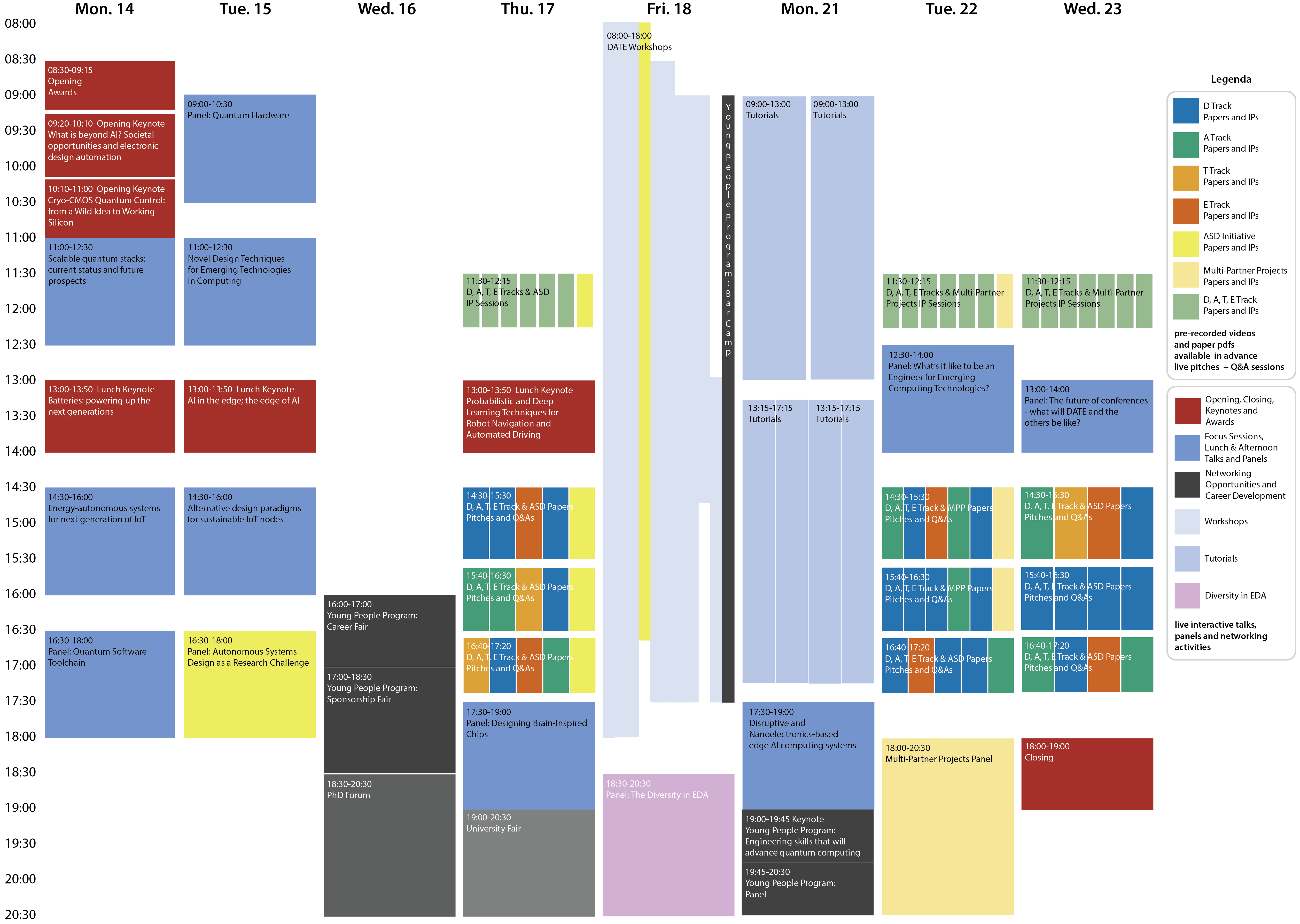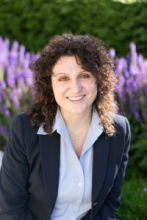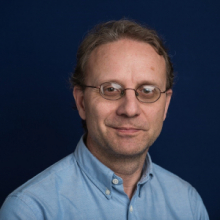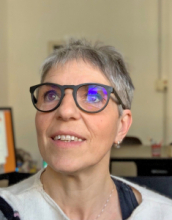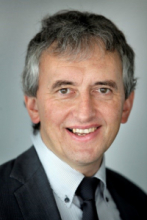The awards have been announced in the closing session on Wednesday, 23 March 2022. Below is the video of the closing session.
EDAA Outstanding Dissertations Award 2022
Topic1:
Thesis: “High-level Synthesis of Dynamically Scheduled Circuits”
Lana Josipovic, Ph.D., EPFL, CH
Advisor: Prof. Paolo Ienne
Topic 3:
Thesis: “Design for Manufacturability and Reliability through Learning and Optimization”
Wei Ye, PhD., University of Texas at Austin, US
Advisor: Prof. David Z. Pan
Topic 4:
Thesis: “Revisiting Fault Analysis of Block Ciphers: Attacks, Defenses, and Vulnerability Assessment Frameworks”
Sayandeep Saha, Ph.D., Indian Institute of Technology, Kharagpur, IN
Advisor: Prof. Debdeep Mukhopadhyay and Prof. Pallab Dasgupta
DATE Best IP Award
XST: A Crossbar Column-Wise Sparse Training For Efficient Continual Learning
Fan Zhang, Li Yang, Jian Meng, Jae-sun Seo, Yu Cao, Deliang Fan, Arizona State University, US
DATE Best Paper Awards
Each year the Design, Automation and Test in Europe Conference presents awards to the authors of the best papers. The selection is performed by the award committee composed of the Track Chairs, Lejla Batina, Theocharis Theocharides, Ilia Polian and Liliana Cucu and the following members: Steve Dai, Julien Forget Stefano Di Carlo, Elena Gnani, Sebastien Le Beux, Romain Lemaire, Hai Li, Nele Mentens, Maria Michael, Katell Morin-Allory, Gianluca Palermo, Ioannis Papaefstathiou, Christian Pilato, Davide Quaglia, Abbas Rahimi, Francesco Regazzoni, Ahmed Rezine, Rosa Rodrigues, Mohamed Sabri, Peh Li Shiuan, Lukas Sekanina, Olivier Sentieys, Johanna Sepulveda, Nima Taheri Nejad, Marian Verhelst, Arnaud Virazel, Pascal Vivet.
The DATE 2022 best papers are:
D Track
FastGR: Global Routing on CPU-GPU with Heterogeneous Task Graph Scheduler
Siting Liu1,2, Peiyu Liao1,2, Rui Zhang3, Zhitang Chen4, Wenlong Lv4, Yibo Lin1, Bei Yu2
1 Peking University, 2 The Chinese University of Hong Kong, 3 HiSilicon Technologies Co., 4 Huawei Noah's Ark Lab
A Track
Algorithm-Hardware Co-Design for Efficient Brain-Inspired Hyperdimensional Learning on Edge
Yang Ni1, Yeseong Kim2, Tajana Rosing3, Mohsen Imani1
1 University of California Irvine, 2 DGIST Republic of Korea, 3 University of California San Diego
T Track
Self-Terminated Write of Multi-Level Cell ReRAM for Efficient Neuromorphic Computing
Zongwu Wang, Zhezhi He, Rui Yang, Shiquan Fan, Jie Lin, Fangxin Liu, Yueyang Jia, Chenxi Yuan, Qidong Tang, Li Jiang
Shanghai Jiao Tong University, China
E Track
Efficient Global Robustness Certification of Neural Networks via Interleaving Twin-Network Encoding
Zhilu Wang1, Chao Huang2, Qi Zhu1
1 Northwestern University, 2 University of Liverpool, Northwestern University
Best Paper Award Nominations
D Track
PowerGear: Early-Stage Power Estimation in FPGA HLS via Heterogeneous Edge-Centric GNNs
Zhe, Lin, Peng Cheng Laboratory
Zike, Yuan, The University of Auckland
Jieru, Zhao, Shanghai Jiao Tong University
Wei, Zhang, Hong Kong University of Science and Technology
Hui, Wang, Peng Cheng Laboratory
Yonghong, Tian, Peking University & Peng Cheng Laboratory
PIMProf: An Automated Program Profiler for Processing-in-Memory Offloading Decisions
Yizhou Wei, University of Virginia
Minxuan Zhou, University of California, San Diego
Sihang Liu, University of Virginia
Korakit Seemakhupt, University of Virginia
Tajana Rosing, University of California, San Diego
Samira Khan, University of Virginia
Full-credit Flow Control: A Novel Technique to Implement Deadlock-free Adaptive Routing
Yi Dai, National University of Defense Technology, China
Kai Lu, National University of Defense Technology, China
Sheng Ma, National University of Defense Technology, China
Junsheng Chang, National University of Defense Technology, China
FastGR: Global Routing on CPU-GPU with Heterogeneous Task Graph Scheduler
Siting Liu, The Chinese University of Hong Kong
Peiyu Liao, The Chinese University of Hong Kong
Rui Zhang, HiSilicon Technologies Co., Ltd. Shenzhen
Zhitang Chen, Huawei Noah's Ark Lab
Wenlong Lv, Huawei Noah's Ark Lab
Yibo Lin, Peking University
Bei Yu, The Chinese University of Hong Kong
CoreMemDTM: Integrated Processor Core and 3D Memory Dynamic Thermal Management for Improved Performance
Lokesh Siddhu, Indian Institute of Technology, Delhi
Rajesh Kedia, Indian Institute of Technology Delhi,
Preeti Ranjan Panda, Indian Institute of Technology Delhi,
MemPool-3D: Boosting Performance and Efficiency of Shared-L1 Memory Many-Core Clusters with 3D Integration
Matheus Cavalcante, ETH Zurich
Anthony Agnesina, Georgia Tech
Samuel Riedel, ETH Zurich
Moritz Brunion, University of Bremen
Alberto Garcia-Ortiz, University of Bremen
Dragomir Milojevic, IMEC
Francky Catthoor, IMEC
Sung Kyu, Lim, Georgia Tech
Luca Benini, Università di Bologna and ETH Zurich, Italy
AdaFlow: A Framework for Adaptive Dataflow CNN Acceleration on FPGAs
Guilherme Korol, Universidade Federal do Rio Grande do Sul
Michael Jordan, Universidade Federal do Rio Grande do Sul
Mateus Beck Rutzig, UFSM
Antonio Carlos Schneider Beck, Universidade Federal do Rio Grande do Sul
Cross-Layer Approximation For Printed Machine Learning Circuits
Giorgos Armeniakos, National Technichal University of Athens
Georgios Zervakis, Karlsruhe Institute of Technology
Dimitrios Soudris, National Technichal University of Athens
Mehdi Tahoori, Karlsruhe Institute of Technology
Joerg Henkel, Karlsruhe Institute of Technology
BMC+Fuzz : Efficient and Effective Test Generation
Ravindra Metta, TCS, IN
Raveendra Medicherla, TCS, IN
Samarjit Chakraborty, UNC Chapel Hill, US
A Track
Prefender: Prefetching Defender against Cache Side Channel Attacks as A Pretender
Luyi Li, Nanjing University
Jiayi Huang, University of California, Santa Barbara
Lang Feng, Nanjing University
Zhongfeng Wang, Nanjing University
Algorithm-Hardware Co-Design for Efficient Brain-Inspired Hyperdimensional Learning on Edge
Yang Ni, University of California, Irvine
Yeseong Kim, DGIST, Republic of Korea
Tajana Rosing, University of California San Diego
Mohsen Imani, University of California Irvine
Bioformers: Embedding Transformers for Ultra-Low Power sEMG-based Gesture Recognition
Alessio Burrello, Università di Bologna
Francesco Bianco Morghet, Politecnico di Torino
Moritz Scherer, ETH Zurich
Simone Benatti, University of Bologna, Italy
Luca, Benini, Università di Bologna and ETH Zurich
Enrico Macii, Politecnico di Torino
Massimo Poncino, Politecnico di Torino
Daniele Jahier Pagliari, Politecnico di Torino
Adaptive Droplet Routing for MEDA Biochips via Deep Reinforcement Learning
Mahmoud Elfar, Duke University
Tung-Che Liang, Duke University
Krishnendu Chakrabarty, Duke University
Miroslav Pajic, Duke University
Accurate Probabilistic Miss Ratio Curve Approximation for Adaptive Cache Allocation in Block Storage Systems
Rongshang Li, University of Sydney
Yingtian Tang, University of Pennsylvania
Qiquan, Shi, Huawei Noah's Ark Lab
Hui Mao, Huawei Noah's Ark Lab
Lei Chen, Huawei Noah's Ark Lab
Jikun Jin, Huawei Storage Product Line
Peng Lu, Huawei Storage Product Line
Zhuo Cheng, Huawei Storage Product Line
T Track
ADD-based Spectral Analysis of Probing Security
Maria Chiara Molteni, Universita' degli Studi di Milano
Vittorio Zaccaria, Politecnico di Milano
Valentina Ciriani, Universita' degli Studi di Milano
Are Analytical Techniques Worthwhile for Analog IC Placement?
Yishuang Lin, Texas A&M University
Yaguang Li, Texas A&M University
Donghao Fang, Texas A&M University
Meghna Madhusudan, University of Minnesota
Sachin S. Sapatnekar, University of Minnesota
Ramesh Harjani, University of Minnesota
Jiang Hu, Texas A&M University
A Cross-Platform Cache Timing Attack Framework via Deep Learning
Ruyi Ding, Northeastern University
Ziyue Zhang, Northeastern University
Xiang Zhang, Northeastern University
Cheng Gongye, Northeastern University
Yunsi Fei, Northeastern University
A. Adam Ding, Northeastern University
Self-Terminated Write of Multi-Level Cell ReRAM for Efficient Neuromorphic Computing
Zongwu Wang, Shanghai Jiaotong University
Zhezhi He, Shanghai Jiao Tong University
Rui Yang, Shanghai Jiaotong University
Shiquan Fan, Xi’an Jiaotong University
Jie Lin, Shanghai Jiaotong University
Fangxin Liu, Shanghai Jiaotong University
Yueyang Jia, Shanghai Jiaotong University
Chenxi Yuan, Xi’an Jiaotong University
Qidong Tang, Shanghai JiaoTong University
Li Jiang, Shanghai Jiao Tong University
Do Temperature and Humidity Exposures Hurt or Benefit Your SSDs?
Adnan Maruf, Florida International University
Sashri Brahmakshatriya, Florida International University
Baolin Li, Northeastern University
Devesh Tiwari, Northeastern University
Gang Quan, Florida International University
Janki Bhimani, Florida International University
E Track
DTQAtten: Leveraging Dynamic Token-based Quantization for Efficient Attention Architecture
Tao Yang, Shanghai Jiao Tong University
Dongyue Li, Shanghai Jiaotong University
Zhuoran Song, Shanghai Jiao Tong University
Yilong Zhao, Shanghai Jiao Tong University
Fangxin Liu, Shanghai Jiaotong University
Zongwu Wang, Shanghai Jiaotong University
Zhezhi He, Shanghai Jiao Tong University
Li Jiang, Shanghai Jiao Tong University
MU-RMW: MiNIMIZING Unnecessary RMW Operations in the Embedded Flash with SMR Disk
Chenlin Ma, Shenzhen University
Zhuokai Zhou, Shenzhen University
Yingping Wang, Shenzhen University
Yi Wang, Shenzhen University
Rui Mao, Shenzhen University
GraphHD: Efficient graph classification using hyperdimensional computing
Igor Nunes, University of California, Irvine
Mike Heddes, University of California, Irvine
Tony Givargis, University of California, Irvine
Alex Nicolau, University of California, Irvine
Alex Veidenbaum, University of California, Irvine
AnaCoNGA: Analytical HW-CNN Co-design using Nested Genetic Algorithms
Nael Fasfous, Technical University of Munich
Manoj Rohit, Vemparala, BMW AG
Alexander Frickenstein, BMW Group
Emanuele Valpreda, Politecnico di Torino
Driton Salihu, Technical University of Munich
Julian Hofer, Karlsruhe Institute of Technology
Anmol Singh, BMW AG
Naveen-Shankar Nagaraja, BMW AG
Hans-Joerg Voegel, BMW AG
Nguyen Anh Vu Doan, Technical University of Munich
Maurizio Martina, Politecnico di Torino
Juergen Becker, Karlsruhe Institute of Technology - ITIV
Walter Stechele, TUM
Efficient Global Robustness Certification of Neural Networks via Interleaving Twin-Network Encoding
Zhilu Wang, Northwestern University
Chao Huang, University of Liverpool, Northwestern University
Qi Zhu, Northwestern University
Cache-Aware Schedulability Analysis of PREM Compliant Tasks
Syed Aftab Rashid, CISTER, ISEP Polytechnic Institute of Porto
Muhammad Ali Awan, CISTER, ISEP Polytechnic Institute of Porto
Pedro Souto, Faculty of Engineering of the University of Porto
Konstantinos Bletsas, CISTER, ISEP Polytechnic Institute of Porto
Eduardo Tovar, CISTER, ISEP Polytechnic Institute of Porto
ACM SIGDA/CEDA/EDAA PhD Forum Prize
Ultra-Fast Temperature Estimation Methods For Architecture-Level Thermal Modeling
Hameedah Sultan, Indian Institute of Technology Dehli, IN
Dependable Reconfigurable Scan Networks
Natalia Lylina, University of Stuttgart, DE
DATE Fellow Award
Franco Fummi, Università di Verona, IT
IEEE CEDA Service Award
Franco Fummi, Università di Verona, IT
IEEE CS TTTC Outstanding Contribution Award
Franco Fummi, Università di Verona, IT
Cristiana Bolchini, Politecnico di Milano, IT
These awards have been announced in the opening session on Monday, 14 March 2022. Below is the video of the opening session.




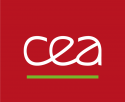







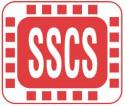



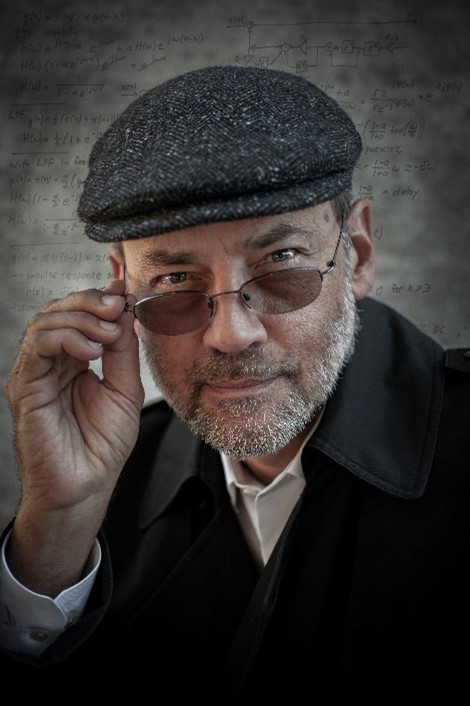 The Achievement Award is given to individuals who made outstanding contributions to the state of the art in electronic design, automation and testing of electronic systems in their life. In order to be eligible, candidates must have made innovative contributions which had an impact on the way electronic systems are being designed.
The Achievement Award is given to individuals who made outstanding contributions to the state of the art in electronic design, automation and testing of electronic systems in their life. In order to be eligible, candidates must have made innovative contributions which had an impact on the way electronic systems are being designed.